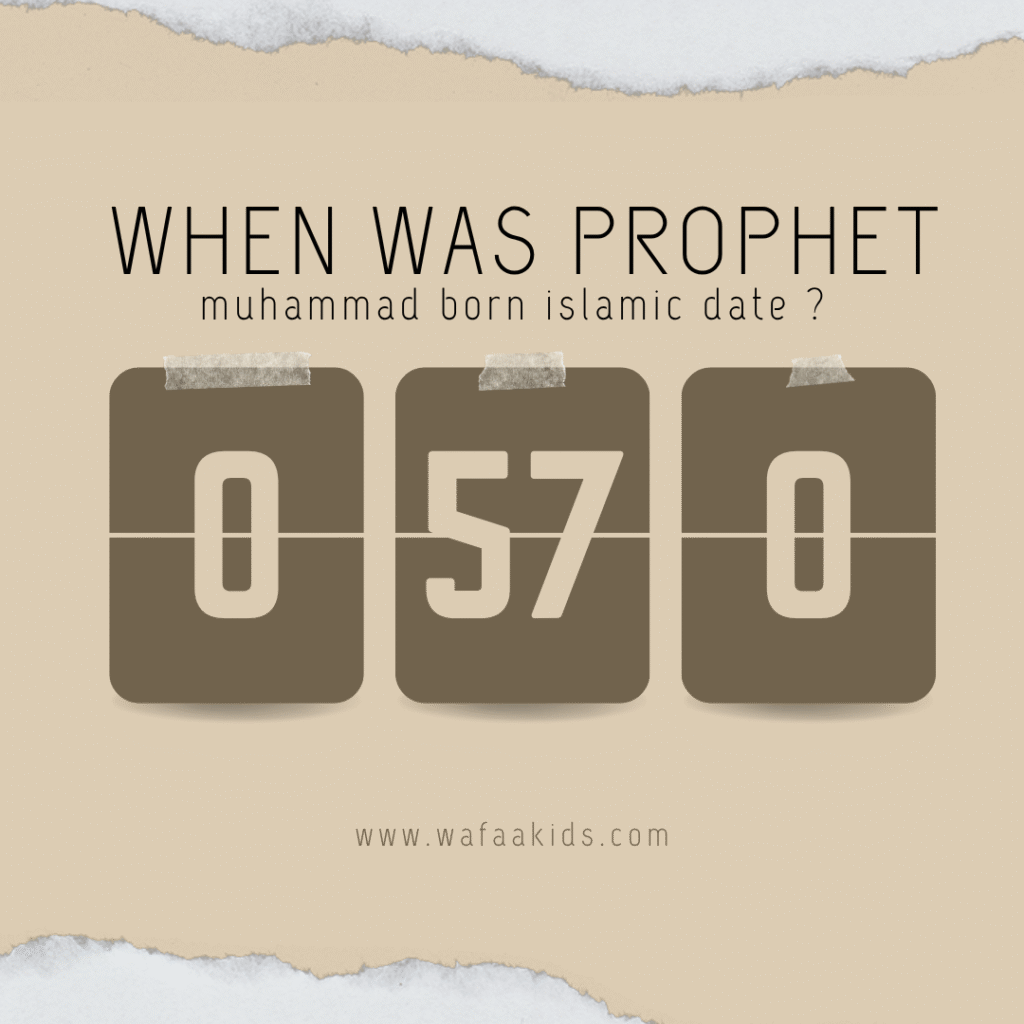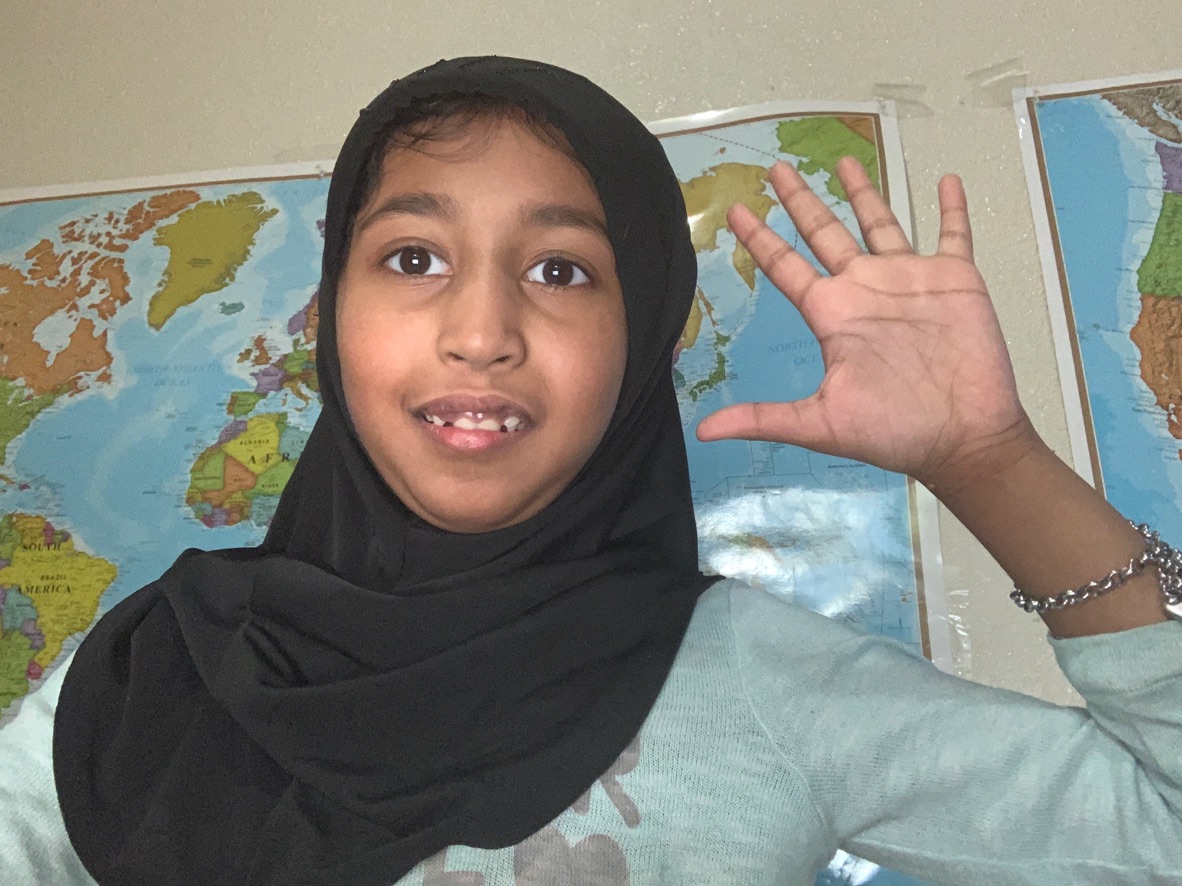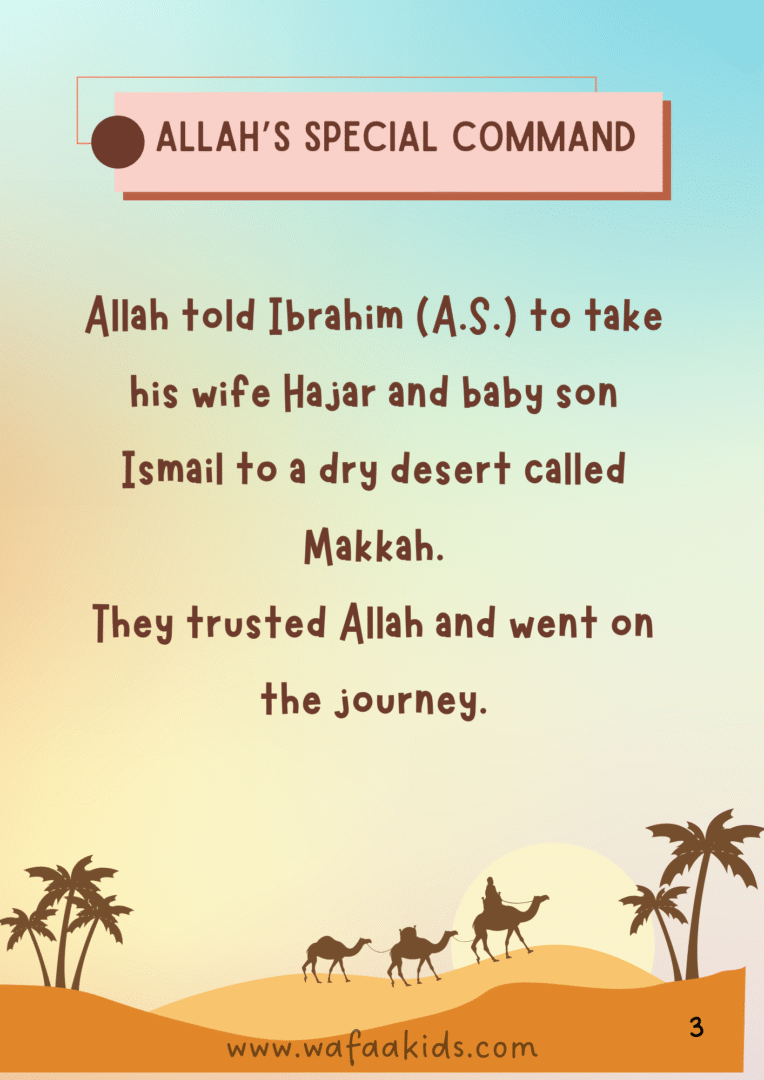when was prophet muhammad born?

When Was Prophet Muhammad Born Islamic Date?
The birth of Prophet Muhammad (ﷺ) is not just a historical event; it is the dawn of a new era for humanity, the arrival of the final messenger who would bring the last and complete revelation from Allah (God). For Muslims around the world, understanding his life, or Sirah, is an essential part of faith. It begins, naturally, with his birth.
The question, “when was Prophet Muhammad born Islamic date,” is one of the most frequently asked by those seeking to connect with the origins of Islam. It’s a question that opens a fascinating window into history, scholarly tradition, and the very way early Muslims prioritized information.
While a specific date is widely celebrated, the precise answer is a subject of rich scholarly discussion. What we find is that some details about his birth are absolutely certain, while others are matters of historical investigation.
Let’s explore the certainties, the probabilities, and the profound lessons we can learn from this noble event.
The Certainties: The Year and the Day of the Week
While the exact calendar date is debated, two crucial pieces of information are overwhelmingly agreed upon by historians and scholars.
1. The Year: ‘Am al-Fil (The Year of the Elephant)
This is the most solid historical anchor for the Prophet’s (ﷺ) birth. It is unanimously agreed that he was born in the “Year of the Elephant.“
What was this event? This was a major, disruptive event in pre-Islamic Arabian history. Abraha, the Abyssinian viceroy of Yemen, built a grand cathedral in Sana’a and demanded that the Arab tribes perform their pilgrimage there instead of at the Kaaba in Makkah. When the Arabs refused, an enraged Abraha amassed a massive army, complete with at least one war elephant (a creature the Arabs had never seen in battle), to march on Makkah and destroy the Kaaba.
The Makkans, including the Prophet’s (ﷺ) grandfather, ‘Abd al-Muttalib,were powerless against such a force. As Abraha’s army advanced, Allah (SWT) intervened directly. He sent flocks of birds that pelted the army with “stones of baked clay” (Sijjeel), utterly destroying them. This miraculous event is immortalized in the Quran in Surah Al-Fil (Chapter 105).
This event was so profound that the Arabs used it as a calendar marker.“The Year of the Elephant” became “Year One” for them, and it is in this year, approximately 570 CE (or 571 CE by some calculations), that Prophet Muhammad (ﷺ) was born. His birth in this year was a sign in itself—as the Kaaba was being saved from a physical attack, the child was born who would save it, and the world, from the spiritual sickness of idolatry.
2. The Day of the Week: Monday
The second certainty, and one that comes from the Prophet (ﷺ) himself,is the day of his birth.
In a well-authenticated Hadith recorded in Sahih Muslim, the Prophet (ﷺ) was asked why he fasted on Mondays. He replied:
“On it I was born, and on it (the first) Revelation came to me.” (Sahih Muslim)
This is a direct and unambiguous statement. His birth, and the beginning of his Prophethood with the first revelation in the Cave of Hira, both occurred on a Monday. This blesses the day of Monday for all time and gives us a concrete, divinely-confirmed piece of the puzzle.
Any correct Islamic date for his birth, therefore, must fall on a Monday.
The Heart of the Debate: The Month and the Date
This is where the scholarly discussion begins. When we ask “when was Prophet Muhammad born Islamic date,” we are usually looking for the month and the number of the day.
The Famous Date: 12th Rabi’ al-Awwal
The most famous and widely celebrated date for the Prophet’s (ﷺ) birth is the 12th day of the month of Rabi’ al-Awwal.
This date is the basis for Mawlid an-Nabi (the Prophet’s Birthday) celebrations in many parts of the Muslim world. It is a date that has been ingrained in Muslim culture for centuries. This opinion was mentioned by early historians like Ibn Ishaq, who wrote one of the first major biographies of the Prophet (ﷺ).
However, it’s important to understand that in classical Islamic scholarship,“famous” (shuhrah) does not always mean “most authentic” (sahih). Many prominent classical and modern scholars have respectfully disagreed with this date, based on their own analysis of historical reports and calculations.
📚 A Pause for Our Future Generation
Before we dive deeper into the historical analysis of the different dates, we must ask why we seek this knowledge. We learn about the Prophet’s (ﷺ) life to love him, to admire him, and to follow his example. And most importantly, we learn it so we can pass this love and this example on to our children.
How do we take these complex historical events—the Year of the Elephant,the debates of scholars, the profound stories of the Sirah—and make them engaging and understandable for a child? How do we build that foundation of love?
At Wafaakids.com, we believe that the stories of our faith are the greatest tools we have. We have dedicated ourselves to creating a beautiful,engaging, and authentic collection of Islamic ebooks for children. We transform the timeless lessons of the Quran and the Sirah into adventures that capture your child’s imagination.
Our ebooks bring the prophets to life, explain the pillars of Islam in simple terms, and instill the noble character traits of Prophet Muhammad (ﷺ). If you want your child to grow up loving their Deen (religion) and understanding their history, you need the right resources.
Visit Wafaakids.com today to explore our library of Islamic ebooks. Give your child the gift of knowledge and plant the seed of faith that will last a lifetime.

Prophets Stories
Course
5 - 16 Years Old
Your Child will learn The Prophets stories from cartoon and then we will teach them how to create their own prophet story using the ai.

What is islam Course
7 - 16 Years Old
Discover the beauty, history, and teachings of Islam in our What is Islam Course—a clear and engaging introduction for anyone who wants to understand the world’s fastest-growing faith.
Resuming the Analysis: The Scholarly Counter-Opinions
Now, returning to the historical investigation. If the 12th is the famous date,what are the other contenders?
The Strongest Contender: 9th Rabi’ al-Awwal
A very strong case, perhaps the strongest from a research-based perspective, is made for the 9th day of Rabi’ al-Awwal.
This conclusion is based on reconciling the two certain facts: the Year of the Elephant and the birth being on a Monday.
Prominent scholars, both classical and modern (such as Safiur Rahman Mubarakpuri, the author of the renowned biography “The Sealed Nectar”),have favored this date. Their reasoning is based on astronomical calculations and historical records which suggest that in the Year of the Elephant (571 CE), the 12th of Rabi’ al-Awwal was not a Monday. However,their calculations showed that the 9th of Rabi’ al-Awwal did fall on a Monday.
Because the Monday Hadith is considered more authentic and binding than the historical reports favoring the 12th, these scholars concluded that the 9th must be the correct date.
Other Opinions: A Spectrum of Scholarship
To show the breadth of the discussion, it’s worth noting that even other dates were mentioned by classical scholars:
2nd Rabi’ al-Awwal: Mentioned by scholars like Abu Ma’shar al-Sindi.
8th Rabi’ al-Awwal: Supported by scholars like Ibn ‘Abd al-Barr and al-Humaidi.
10th Rabi’ al-Awwal: Favored by scholars like Al-Zubayr ibn al-Bakkar.
Other Months: A very small minority of early scholars even suggested months other than Rabi’ al-Awwal, such as Ramadan or Safar, though these opinions are exceptionally rare.
What Truly Matters: Beyond the Calendar
This diversity of opinion is not a weakness in Islam; it is a sign of a vibrant,scholarly tradition. It teaches us a profound lesson about priorities.
Why was the exact date not preserved with the same 100% certainty as the Quran itself?
Oral Tradition: The pre-Islamic Arabs were a powerful oral culture.They were masters of lineage and poetry but were not meticulous in recording specific calendar dates, which they saw as less important than the event itself (like the Year of the Elephant).
Focus on the Message, Not the Birthday: The Sahaba (Companions) of the Prophet (ﷺ) were practical. Their entire focus was on his teachings, his actions (the Sunnah), and the preservation of the Quran. The start of his prophethood at age 40 (the Bi’thah) was a far more significant event to them than his date of birth. They were concerned with the man and the message, not the day.
So, when we seek the answer to “when was Prophet Muhammad born Islamic date,” the most complete answer is:
He was born on a Monday in Rabi’ al-Awwal, in the Year of the Elephant.
The most famous tradition says it was the 12th. Strong scholarly and astronomical research points to the 9th.
What is a Muslim to believe? You are free to hold to the famous opinion of the 12th, or the researched opinion of the 9th. Neither is an article of faith (aqeedah).
What is obligatory is to believe that he was born, that he was the son of ‘Abdullah and Aminah, that he was from the Quraysh, that he was the final Prophet of Allah, and that he delivered the message of the Quran.
The truest celebration of his birth is not to simply mark a day on the calendar, but to bring his Sunnah to life in our own homes and hearts,every single day. It is to study his Sirah (biography), to teach his patience and compassion to our children, and to live by the merciful, just, and beautiful message he brought to all the worlds.
What is Hajj and How to Do it
$3.99Original price was: $3.99.$1.99Current price is: $1.99.Story of Ibrahim(as) and How Hajj Started
$3.99Original price was: $3.99.$1.99Current price is: $1.99.🕋 Hajj Bundle – Islamic books for kids
$9.99Original price was: $9.99.$4.99Current price is: $4.99.Eid Al-Adha Fun – Ebook for Kids
$3.99Original price was: $3.99.$1.99Current price is: $1.99.What We Can Learn from Hajj ? – E-book
$3.99Original price was: $3.99.$1.99Current price is: $1.99.The Pillars of Al-Hajj and it’s Sunnahs
$3.99Original price was: $3.99.$1.99Current price is: $1.99.The Last 3 Surah’s
$2.99Original price was: $2.99.$0.99Current price is: $0.99.Prophets Stories Bundle – islamic books stories of the prophets
$39.99Original price was: $39.99.$9.99Current price is: $9.99.Allah Knew Me – Hadith – Islamic Ebooks For Kids
$2.99Original price was: $2.99.$0.99Current price is: $0.99.
Table of Contents
What is Hajj and How to Do it
$3.99Original price was: $3.99.$1.99Current price is: $1.99.Story of Ibrahim(as) and How Hajj Started
$3.99Original price was: $3.99.$1.99Current price is: $1.99.🕋 Hajj Bundle – Islamic books for kids
$9.99Original price was: $9.99.$4.99Current price is: $4.99.Eid Al-Adha Fun – Ebook for Kids
$3.99Original price was: $3.99.$1.99Current price is: $1.99.What We Can Learn from Hajj ? – E-book
$3.99Original price was: $3.99.$1.99Current price is: $1.99.The Pillars of Al-Hajj and it’s Sunnahs
$3.99Original price was: $3.99.$1.99Current price is: $1.99.
Popular Posts
Parents Say About WafaaKids.
4.9
(121 Review) From preply
Alhamdulilah, my son enjoys the lessons. Very systematic learning. If would be great if could include videos of the same topic learnt. Kids learn faster through songs & games insyaAllah. Look forward for the next lesson 👍🏻👏🏼Online Quran Academy

I am glad that I have found WafaaKids for my two kids, the teaching style is very flexible and they know how to keep the students engaged and interested in the topic they are teaching, I hope my kids can learn more from them in the coming days InshaAllah. The Best Islamic stories for kids

My son is 13 years old and he takes lessons with WafaaKids for one hour a week. They are very satisfied and their voluntarily asked for another lesson - otherwise he will never study voluntarily. WafaaKids teacher's responds to the student's wishes, their youthful, polite manner and is highly recommended. Already from the first unit I noticed a progress with my son. I'm very satisfied. Online Quran Academy

I am happy to find WafaaKids to teach my 8yr old daughter, Quran and arabic. she has completed around 10 sessions and never got bored. now she is motivated to learn Quran and looks forward to his classes. I like how he engages with kids by telling them stories and other fun activities. he also makes arrangements to interact with other students and their parents to motivate each other. overall he is a good find and I recommend them especially for kids. The Best Islamic stories for kids

FAQs
You ask, We answer
The first step is to fill out a quick form The Form and we will send you the link of your Trial lesson on your mail and what’s app.
We are providing an onsite lessons only in Egypt, Otherwise will be online via any video call platform like Zoom.
Most students enroll in the Basic plan. The average student at WafaaKids spends around $64 per month. This approximately amounts to 8 teaching hours per month or 2 x 1-hour lessons per week which are suited for most levels and ensure the program goals are met. The pricing can be slightly different depending on the plan.
Over the years, we have had successes with very young students but we recognize that every child is different and some might have difficulty interacting with a teacher online. In general, we found that starting from age 7, there are rarely any issues with teaching online.
For younger ages, a guardian might need to accompany the student during the lessons initially to provide support until the student gets used to his/her teacher.
We understand that quality education can get expensive and therefore we offer a number of discounts to maximize the benefit for our students enrolled in our programs.
(1) Family Discounts: Students enrolled in our Basic and Pro plans receive 10% and 5% off respectively when 2 or more members of their family are enrolled in the same plan.
(2) Zakat Fund: For students who experience financial hardship, WafaaKids maintains a Zakat eligible fund that is used towards partially or fully subsidizing fees. You will be required to provide documentation to demonstrate your eligibility.























